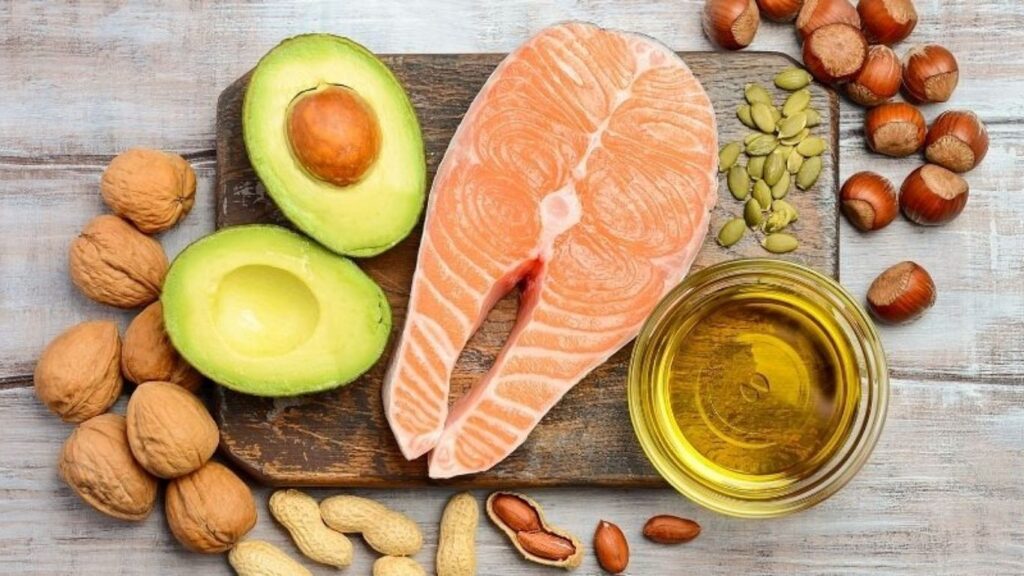In the realm of nutrition, fats often get a bad reputation. For decades, dietary fats were vilified as the primary culprit behind weight gain, heart disease, and other health issues. However, the reality is much more nuanced. Not all fats are created equal; some are essential for good health, while others can be detrimental. Understanding the difference between healthy and unhealthy fats is crucial for making informed dietary choices that can significantly impact your overall well-being.
Healthy Fats vs. Unhealthy Fats: Understanding the Differences
What Are Fats?
Fats, also known as lipids, are one of the three macronutrients, along with carbohydrates and proteins, that our bodies need to function properly. Fats provide a concentrated source of energy, support cell growth, protect organs, and help in the absorption of essential vitamins (A, D, E, and K). They are also involved in hormone production and immune function. However, the type of fat you consume plays a crucial role in determining whether it will benefit or harm your health.
Healthy Fats: The Good Guys
Healthy fats, also known as unsaturated fats, are fats that provide numerous health benefits. They are typically liquid at room temperature and are found in various plant-based oils, nuts, seeds, fish, and some animal products.

1. Monounsaturated Fats
Monounsaturated fats are a type of unsaturated fat found in foods like olive oil, avocados, nuts (almonds, cashews, peanuts), and seeds. These fats are known for their heart-healthy properties. They help reduce levels of low-density lipoprotein (LDL) cholesterol, often referred to as “bad” cholesterol, while maintaining or even increasing high-density lipoprotein (HDL) cholesterol, the “good” cholesterol.
Benefits of Monounsaturated Fats:
- Heart Health: Lowering LDL cholesterol reduces the risk of heart disease and stroke.
- Anti-Inflammatory: Monounsaturated fats have anti-inflammatory properties, which can help reduce the risk of chronic diseases like arthritis.
- Weight Management: These fats can help with weight management by promoting satiety, preventing overeating.
2. Polyunsaturated Fats
Polyunsaturated fats are another type of unsaturated fat, which include essential fatty acids like omega-3 and omega-6. These fats are found in fatty fish (salmon, mackerel, sardines), walnuts, flaxseeds, chia seeds, and sunflower oil.
Benefits of Polyunsaturated Fats:
- Omega-3 Fatty Acids: These are essential for brain health, reducing inflammation, and lowering the risk of chronic diseases such as heart disease. Omega-3s are also beneficial for mental health, helping to reduce symptoms of depression and anxiety.
- Omega-6 Fatty Acids: While necessary for health, it’s important to balance omega-6 intake with omega-3 to prevent inflammation.
- Cell Function: Polyunsaturated fats play a role in maintaining the integrity of cell membranes and are crucial for normal brain function and growth.
Unhealthy Fats: The Bad Guys
Unhealthy fats, primarily saturated and trans fats, can have a negative impact on your health when consumed in excess. These fats are typically solid at room temperature and are found in animal products, processed foods, and some plant oils.

1. Saturated Fats
Saturated fats are found in animal products like red meat, butter, cheese, and full-fat dairy, as well as in certain tropical oils like coconut oil and palm oil. While some saturated fat is necessary for bodily functions, excessive intake can raise LDL cholesterol levels, increasing the risk of heart disease.
Risks of Saturated Fats:
- Heart Disease: High intake of saturated fats is linked to an increased risk of coronary artery disease, stroke, and other cardiovascular conditions.
- Weight Gain: Saturated fats are calorie-dense and can contribute to weight gain if consumed in large quantities.
- Inflammation: Excessive saturated fat intake may promote inflammation, leading to various chronic diseases.
2. Trans Fats
Trans fats are the worst type of fat you can consume. They are artificially created through a process called hydrogenation, which makes liquid oils solid at room temperature. Trans fats are commonly found in processed foods like margarine, baked goods, and fried foods.
Risks of Trans Fats:
- Heart Disease: Trans fats raise LDL cholesterol levels while lowering HDL cholesterol, significantly increasing the risk of heart disease and stroke.
- Inflammation: These fats contribute to inflammation, which is a precursor to many chronic diseases.
- Diabetes: High intake of trans fats is associated with an increased risk of type 2 diabetes.
Making Healthy Fat Choices
Understanding the difference between healthy and unhealthy fats is crucial for making informed dietary decisions. Here are some tips to help you make better fat choices:

- Choose Plant-Based Oils: Opt for oils rich in monounsaturated and polyunsaturated fats, such as olive oil, avocado oil, and canola oil.
- Incorporate Fatty Fish: Include fatty fish like salmon, mackerel, and sardines in your diet at least twice a week to boost your omega-3 intake.
- Snack on Nuts and Seeds: Almonds, walnuts, flaxseeds, and chia seeds are excellent sources of healthy fats.
- Limit Saturated Fats: Reduce your intake of red meat, butter, and full-fat dairy products. Instead, choose lean proteins and low-fat or fat-free dairy options.
- Avoid Trans Fats: Read food labels carefully and avoid products that contain partially hydrogenated oils, the primary source of trans fats.
Conclusion
Fats are an essential part of a healthy diet, but it’s important to differentiate between healthy and unhealthy fats. Monounsaturated and polyunsaturated fats are beneficial and should be included in your daily diet, while saturated and trans fats should be limited to protect your heart and overall health. By making smart fat choices, you can enjoy the benefits of fats without the associated health risks, leading to a balanced and nutritious diet that supports long-term well-being.
Incorporating a variety of healthy fats while minimizing unhealthy fats can significantly improve your health, reduce your risk of chronic diseases, and help you maintain a healthy weight. Remember, not all fats are bad—it’s the type and amount that make the difference.
Also read: Top 5 Superfoods to Add Decades to Your Life: Eat Your Way to a Longer Life!
